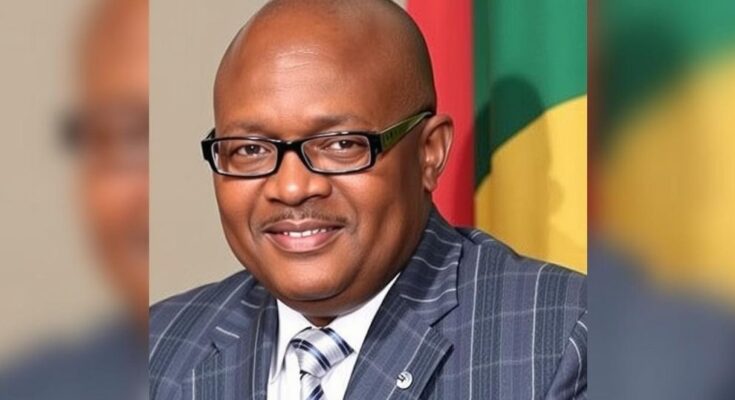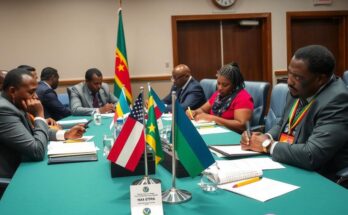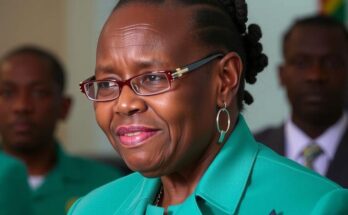Namibia’s President-elect Netumbo Nandi-Ndaitwah has dismissed allegations of Zimbabwean interference in the recent elections, made by five opposition parties. The claims, lacking evidence, raised concerns over possible manipulation akin to tactics used by Zanu-PF in Zimbabwe. Nandi-Ndaitwah urged journalists to investigate the matter thoroughly, amidst logistical issues in the election process and criticism of the Electoral Commission’s preparations.
Netumbo Nandi-Ndaitwah, Namibia’s newly elected female President, has firmly rejected allegations of interference by Zimbabwe in the nation’s recent presidential and National Assembly elections. These claims, made by five opposition parties—including the Independent Patriots for Change, Landless People’s Movement, Affirmative Repositioning, All People’s Party, and Popular Democratic Movement—insisted that Zimbabwe’s ruling Zanu-PF party had a hand in influencing the electoral results that favored the ruling Swapo party.
The opposition, although lacking concrete evidence, expressed significant concerns regarding potential involvement by Zanu-PF. Ivan Skrywer, leader of the LPM, drew parallels between a shortage of ballots in Namibia and alleged electoral manipulation tactics used by Zanu-PF in Zimbabwe. Imms Nashinge, spokesperson for IPC, cited a premature announcement of Swapo’s victory by George Charamba, a spokesperson for the Zimbabwean presidency, as evidence of interference, questioning, “How do they know? Is Namibia a province of Zimbabwe? Since when has Zimbabwe had so much interest in our affairs?”
In contrast, Nandi-Ndaitwah branded these accusations as unfounded, insisting they are part of a calculated attempt to undermine the Swapo party’s legitimacy. During remarks in Windhoek, she called for investigative journalists to explore these claims further, asserting, “Those saying it, they know it’s not true, but they are saying it deliberately to confuse our people.”
The election process in Namibia faced several logistical challenges, such as ballot shortages and equipment failures, resulting in extended queues and voting delays. Opposition groups maintain that these issues hindered voter turnout, particularly in the Khomas region. Critics have also condemned Namibia’s Electoral Commission for poor planning and questioned the legal validity of extending the voting period by an additional two days. Notably, both Zanu-PF and Swapo officials have refuted any allegations of misconduct, with Zanu-PF secretary-general Obert Mpofu labeling them as “primitive thinking.”
The recent Namibian elections have raised significant concerns regarding external influences and electoral integrity. The accusations of Zimbabwean interference highlight the historical context of regional political dynamics, particularly between the ruling parties of Namibia (Swapo) and Zimbabwe (Zanu-PF). With a heightened atmosphere of suspicion, the integrity of the electoral process in Namibia is under scrutiny, reflecting broader issues of democratic governance in Southern Africa.
In conclusion, the allegations of Zimbabwe’s interference in Namibia’s elections have been strongly denied by President-elect Nandi-Ndaitwah, who deems them unfounded and part of a plot to discredit her party. The logistical issues during the elections have also drawn criticism from various opposition groups, invoking historical concerns about electoral manipulation in the region. Both Swapo and Zanu-PF officials have dismissed the allegations, calling for a focus on genuine electoral challenges rather than unfounded conspiracy theories.
Original Source: newscentral.africa




